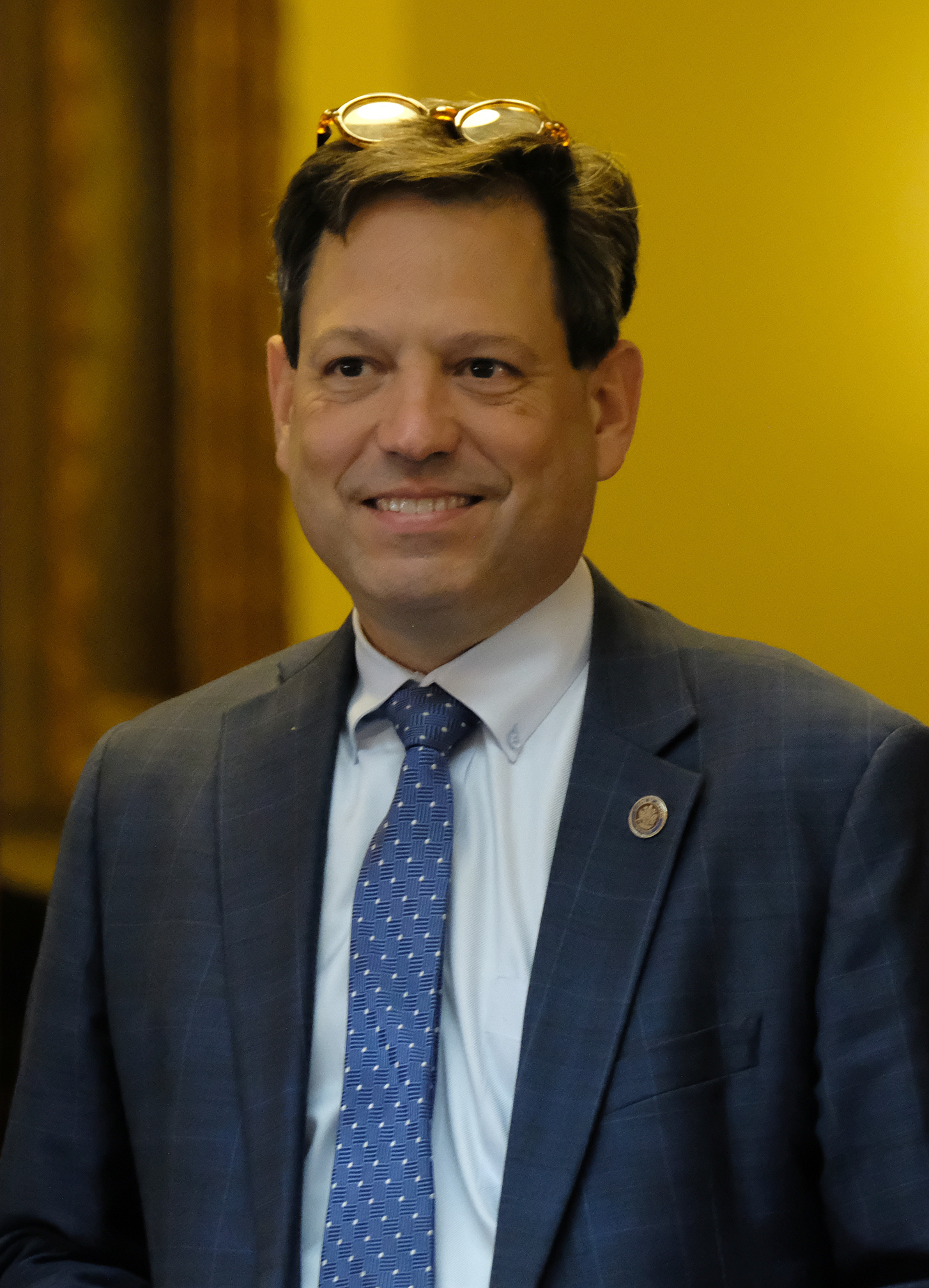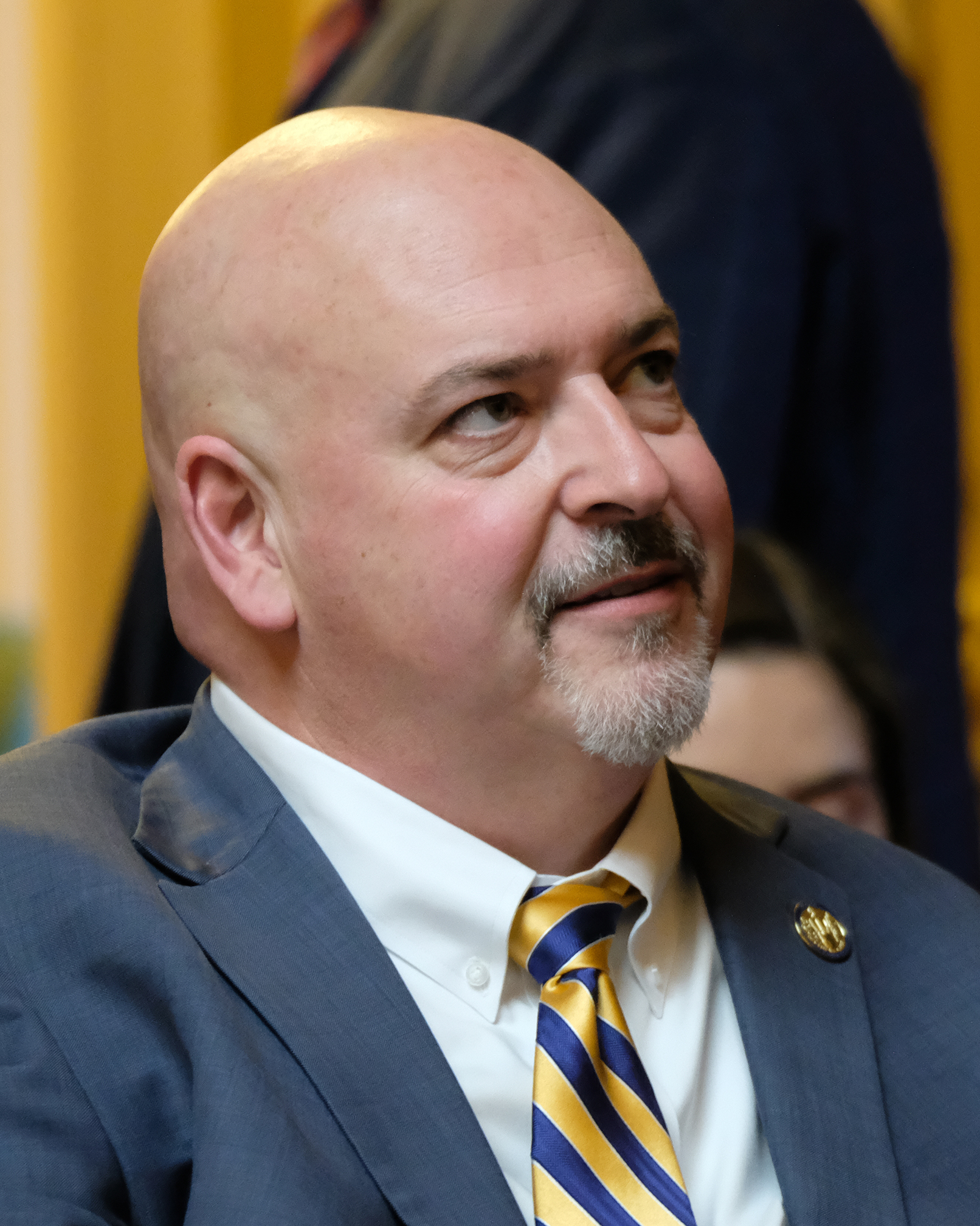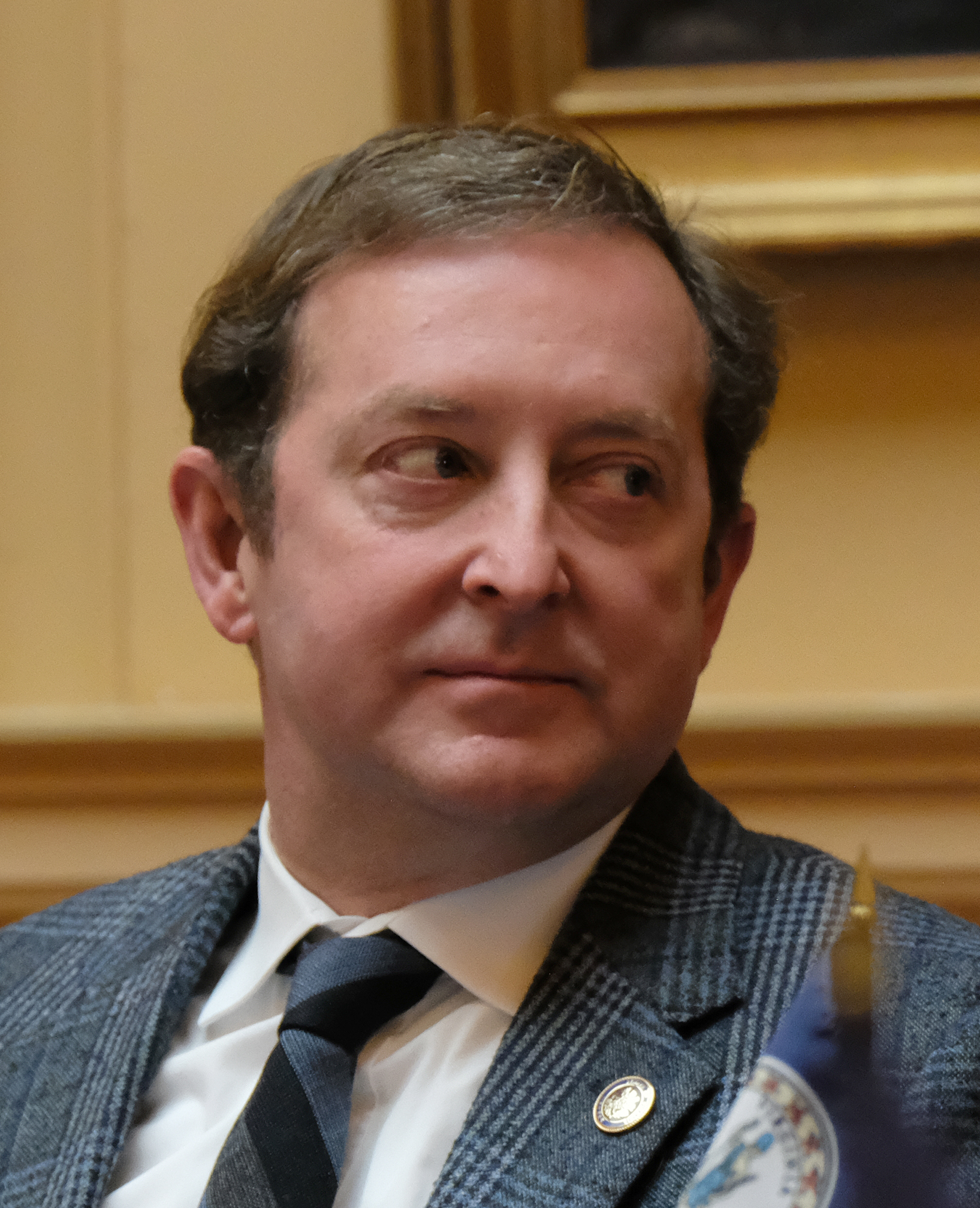Just hours before the constitutionally mandated deadline, Gov. Glenn Youngkin on Monday rolled out a package of more than 240 amendments to the state’s biennial budget that the Democratic-controlled legislature sent to his desk last month.
The proposed $64 billion spending plan for fiscal years 2024-26, which Youngkin has dubbed the “Common Ground Budget,” eliminates all tax increases proposed by Democrats and invests a record $21.2 billion in K-12 education. It provides $1 billion in funding for higher education to support a cap on tuition increases and a 3% pay increase for teachers and state employees, and increases investments in health and human resources by $3.2 billion over the biennium.
Meant as a conciliatory offering to Democrats, the budget also does not call for additional tax relief that Youngkin had pushed for when he rolled out his original budget proposal in December. At the time, Youngkin wanted a 12% reduction of all income taxes, with a top rate of 5.1%. To offset the estimated annual revenue loss of $2.3 billion, he proposed increasing the state’s sales tax rate from 4.3% to 5.2%.
“The budget process work is hard, but with that we have the opportunity to hear and see one another, to understand our priorities and yes, to compromise and to find common ground that will enable us to unleash the next chapter of Virginia’s future,” Youngkin said before an audience of administration officials, state employees and reporters at the Patrick Henry Building in Richmond.
“I believe that this package of amendments that we have released today can achieve all of that and get us there on time, with a budget that is clean, without tax increases, and yes, a little bit frustrating to me, without tax decreases,” Youngkin said. “But that is what finding common ground is all about. And when we do this, we can present a budget today that is structurally balanced and keeps Virginia on a winning path.”
A little over one week before the General Assembly will return to Richmond for the so-called veto session to consider Youngkin’s proposed budget amendments and his changes to other legislation, both sides have remained far apart on the budget, which is set to take effect July 1.
After the legislature had adjourned its regular session, Youngkin embarked on a statewide tour of campaign-style events where he vowed to cut $2.6 billion in tax increases from what he had dubbed a “backward budget” and urged his supporters to push back against the proposal. The move prompted Democratic leaders to launch their own statewide campaign to rally support for their spending priorities.
Young initially did not rule out vetoing the entire spending plan if lawmakers didn’t include the proposed $2 billion sports arena in Northern Virginia that Senate Democrats had refused to even consider. But later in March, the arena deal fell apart when the city of Alexandria declared that the plan was dead.
In a call with reporters earlier on Monday, Youngkin aides said that while the budget passed by the General Assembly cut around $850 million of the governor’s priority spending items from his originally introduced budget, Youngkin’s amendments restored only $140 million of those expenditures and preserved around $870 million of spending increases that the legislature had asked for.
And combined with the adjustment in the elimination of tax relief from the introduced budget, this would allow for $2.4 billion in increased spending carried over from the previous biennial spending plan while maintaining the budget’s structural balance, the aides said.
Youngkin reiterated Monday that a first step in finding common ground is recognizing that the General Assembly and the executive branch will have to make decisions together.
“I will propose today that that decision together is that we do not fight over tax decreases, but we also recognize it’s not time, nor will it ever be, for tax increases that will interrupt this economic model that is working so well,” Youngkin said. He later told reporters that his proposed amendments were the only changes to the budget and that he did not issue any line-item vetoes.
Youngkin also left unchanged the $2.5 million allocation for the proposed inland port in Washington County — which is less than the $10 million he had asked for in his own budget back in December.
“The conference reduced the spending on it, and it wasn’t because we don’t all fully support it, it’s that there had been money put in in the last budget cycle, and that money hasn’t been spent yet,” Youngkin said of a first $10 million appropriation from the amended current budget that the legislature didn’t approve until September.
“The port is committed to the inland port, the region is, I was just there a couple weeks ago. Not having funding in year one is not a signal … we are very supportive of it, it’s just money left over from the last budget cycle.”

Sen. Scott Surovell, D-Fairfax County and the Senate majority leader, said in a call with reporters Monday afternoon that Youngkin’s presentation has left Democrats with a lot of questions, adding that the governor’s event was “unprecedented and just a distraction” from the record number of more than 140 bills that he has vetoed this year alone.
“He’s trying to cover up the fact that he has been incredibly confrontational and aggressive with vetoing very modest policy proposals, many of which are supported by over 70% of the voters,” Surovell said, referring to Youngkin’s rejection of bipartisan legislation that would have created a legal adult-use cannabis market in Virginia by next year.
Instead, Youngkin continues to engage in campaign-style events and branding of his initiatives, “which is not something we normally see in a lot of Virginia governors,” Surovell said. “In a lot of ways it feels like this governor has not yet left campaign mode and moved into governing mode, and he’s continued to be taking a very partisan tone with a lot of his policy proposals.”
Surovell said that he found Youngkin’s reversal on tax increases “striking” after he had initially proposed a hike of the state’s sales tax in his own budget. He added that the governor’s staff also took credit Monday for proposals that Democrats had carried this year, including the 3% pay increase for teachers and state employees.
“We are going to be looking at these proposals very carefully to make sure that the budget is structurally balanced in accordance with our constitution and the bond agency obligations, and we are going to make sure that these amendments provide the levels of services that Virginians expect given the level of wealth and income and expectations of our citizens,” Surovell said of Youngkin’s amendments.
“If we are going to maintain the level of spending that we had in our prior budget, the modest tax modification that we had in the last proposal is necessary in order to get the revenues to support that level of service,” he said.
Youngkin allies in the legislature, however, hailed the governor’s proposed amendments to the spending plan as a “genuinely Herculean effort to find common ground with the Democrats” in the General Assembly.

“It retains the vast majority of their funding priorities, and it does so without raising taxes,” said Del. Todd Gilbert, R-Shenandoah County and the House Republican minority leader. “Even as Democrats refused to come to the table, the governor has put forward nothing less than an olive branch of compromise. I look forward to working with him to see these amendments accepted, and the budget signed into law.”
And Sen. Todd Pillion, R-Washington County and one of the budget conferees, said in a statement that the General Assembly and the governor have a “shared responsibility to deliver a sound and balanced budget” for all Virginians.

“The amendments presented by Governor Youngkin today are another important step in that process. We all understand that the budget bill is the single most significant piece of legislation that we produce, and I remain committed to working with all parties to ensure we have a final budget that invests in Virginians and our future,” Pillion said.
The legislature is set to reconvene April 17 for what is usually a one-day session to weigh gubernatorial amendments, but the state constitution allows the legislature up to 10 days to air their differences.
When asked whether he was concerned about the General Assembly rejection most or all of his amendments by simple majority, Youngkin remained optimistic.
“My hope is that they won’t be, and that is the whole purpose of having the opportunity over the course of the next nine days to sit down and brief and speak through it,” he said, adding that he spoke with Democratic leadership in both chambers just last week.
“The next step is now for us to start working together to package everything in a way that it can be efficiently processed next Wednesday. It’s a lot of amendments, but they can be grouped together and we can handle them in blocks,” Youngkin said. “I also invite them to engage in the work with us, because I think they will find that their priorities are meaningfully, if not fully, reflected in the Common Ground Budget.”



